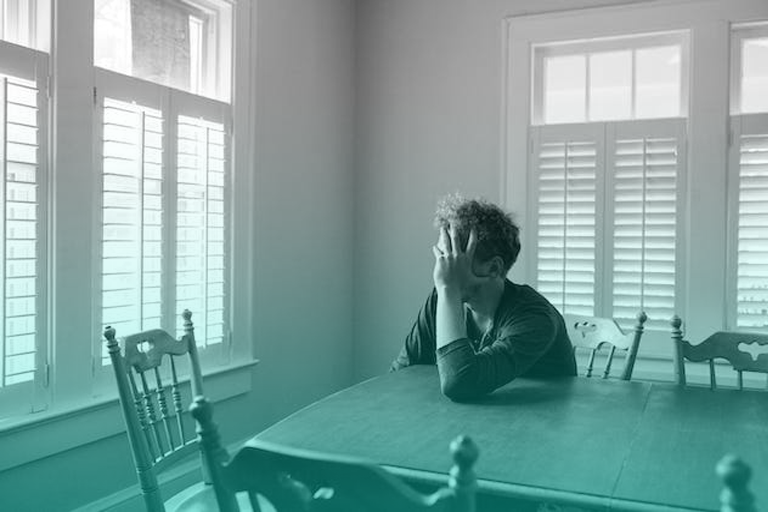Unraveling the Knot: Navigating Self-Hatred and Finding Healing
In the complex tapestry of human emotions, self-loathing can be one of the most challenging threads to unravel. Feeling a deep sense of "I hate myself" is a painful and isolating experience that can impact every aspect of a person's life, including their mental and physical well-being. In this article, we will explore the roots of self-hatred, its manifestations, and most importantly, offer guidance on how to break free from its grip and foster self-compassion.
Understanding the Roots of Self-Hatred
Negative Self-Talk
Negative self-talk is a pervasive aspect of self-hatred. Individuals caught in this cycle often engage in harsh, critical conversations with themselves, creating a constant stream of destructive thoughts.
Perfectionism
The relentless pursuit of perfection can be a breeding ground for self-hatred. Setting impossibly high standards and constantly berating oneself for not meeting them can lead to a perpetual cycle of disappointment and self-loathing.
Past Trauma
Unresolved
trauma from the past, such as childhood abuse or neglect, can contribute to feelings of worthlessness. These deep-seated wounds often manifest in a distorted self-image and persistent feelings of shame.
Comparison Trap
Comparing one to others, especially in the age of social media, can fuel self-hatred. The constant barrage of seemingly perfect lives can intensify feelings of inadequacy and reinforce the belief that one is inherently flawed.
Lack of Self-Compassion
A critical component of self-hatred is the absence of self-compassion. Individuals may find it challenging to extend the same kindness and understanding to themselves that they readily offer to others.
Manifestations of Self-Hatred
Social Isolation
Those grappling with self-hatred often isolate themselves from social interactions. The fear of judgment and the belief that others would dislike them can lead to a self-imposed isolation.
Self-Destructive Behaviors
Self-hatred may manifest in self-destructive behaviors, such as substance abuse, excessive risk-taking, or engaging in harmful relationships. These actions serve as an external expression of internal pain.
Mental Health Challenges
Self-hatred is closely linked to mental health issues such as depression, anxiety, and suicidal ideation. The constant internal battle can take a toll on one's overall emotional well-being.
Physical Health Impact
The mind-body connection is powerful, and self-hatred can manifest in physical symptoms. Chronic stress, insomnia, and even compromised immune function can result from the emotional turmoil associated with self-loathing.
Ready to prioritize your mental well-being?
Cultivating Self-Compassion and Healing
Challenge Negative Thoughts
Actively challenge negative thoughts by questioning their validity. Are these thoughts based on reality, or are they distorted perceptions rooted in self-hatred? Journaling can be a helpful tool in identifying and reframing
negative thought patterns.
Practice Self-Kindness
Treat yourself with the same kindness and understanding that you would offer to a friend. Engage in self-care activities that nurture your physical, emotional, and mental well-being.
Seek Professional Help
Breaking free from the cycle of self-hatred often requires the support of a mental health professional. Psychologists and counselors can provide a safe space to explore the root causes of self-loathing and develop strategies for healing.
Build a Support System
Share your struggles with trusted friends or family members. Building a support system can provide a sense of connection and understanding, reducing the isolation that often accompanies self-hatred.
Set Realistic Goals
Replace perfectionistic tendencies with realistic and achievable goals. Celebrate small victories, and recognize that imperfections are a natural part of the human experience.
The Role of a Psychologist
When self-hatred becomes overwhelming and interferes with daily life, seeking the guidance of a psychologist is a crucial step towards healing. Psychologists specialize in understanding the intricacies of self-esteem and can provide personalized strategies for breaking free from the grips of self-loathing.
Through therapeutic interventions, individuals can explore the root causes of their negative self-perception, develop self-compassion, and work towards building a more positive self-image.
Conclusion
Breaking free from the shackles of self-hatred is a courageous journey toward self-discovery and healing. If you find yourself caught in the relentless cycle of "I hate myself," know that you are not alone, and help is available.
Visit our
Psychologist Page to connect with experienced psychologists who can provide the support and guidance needed to navigate the challenges of self-loathing. Together, we can work towards a future where self-compassion and self-love become the guiding lights on the path to a healthier and happier life.



 Let me support you in finding what’s going to keep you going on your journey!
Let me support you in finding what’s going to keep you going on your journey!